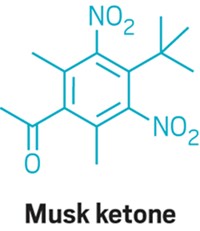Advertisement
Grab your lab coat. Let's get started
Welcome!
Welcome!
Create an account below to get 6 C&EN articles per month, receive newsletters and more - all free.
It seems this is your first time logging in online. Please enter the following information to continue.
As an ACS member you automatically get access to this site. All we need is few more details to create your reading experience.
Not you? Sign in with a different account.
Not you? Sign in with a different account.
ERROR 1
ERROR 1
ERROR 2
ERROR 2
ERROR 2
ERROR 2
ERROR 2
Password and Confirm password must match.
If you have an ACS member number, please enter it here so we can link this account to your membership. (optional)
ERROR 2
ACS values your privacy. By submitting your information, you are gaining access to C&EN and subscribing to our weekly newsletter. We use the information you provide to make your reading experience better, and we will never sell your data to third party members.
Business
Walmart Pushes Suppliers To Disclose Ingredients, Phase Out Chemicals Of Concern
Green Chemistry: Activists cheer retail giant’s shift away from chemicals that pose risks to health and environment
by Melody M. Bomgardner
September 19, 2013
| A version of this story appeared in
Volume 91, Issue 38

A new policy from retail giant Walmart governing the chemical content of consumable household goods is being hailed by environmental and health advocate groups as both aggressive and comprehensive.
The program will require suppliers of cleaning, personal care, and beauty products to disclose ingredients to the public starting in 2015 and to phase out the use of 10 chemicals of concern. However, the company did not reveal the names of those chemicals or a timetable for the completion of the phaseouts.
Recent moves by consumer product companies may hint at the names of the chemicals on Walmart’s list. Earlier this month, Procter & Gamble disclosed it will phase out use of the fragrance carrier diethyl phthalate and the antimicrobial triclosan by 2014. In 2012, Johnson & Johnson pledged to remove phthalates, triclosan, formaldehyde, and parabens from personal care products.
Walmart’s suppliers will also be required to share product information with the retailer via a software screening tool that uses ingredient data to analyze potential impact on human health and the environment. For its own store brands, the company will participate when possible in EPA’s Design for the Environment program, which labels products as safer for human health and the environment based on green chemistry, toxicology, and modeling.
“In terms of U.S. retailers, [Walmart is] way beyond where other retailers are in engaging on the issue of chemicals in products,” says Mark Rossi, codirector of Clean Production Action, an advocate for sustainable consumer products. “That policy is setting the bar in terms of expectations on disclosure to consumers.”
Walmart developed the new policy with the Environmental Defense Fund, an advocacy group. “Some companies stop at issuing a restricted-substances list,” says Sarah Vogel, director of EDF’s environmental health program. “No other company is requiring the all-important, but often forgotten, second step to truly transformational phaseouts: putting a system in place that avoids regrettable chemical substitutions.”



Join the conversation
Contact the reporter
Submit a Letter to the Editor for publication
Engage with us on Twitter